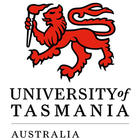Master of Laboratory Medicine
Master of Laboratory Medicine
Laboratory Medicine is at the heart of healthcare. Prepare yourself to work in specialised medical and pathology laboratories that provide essential diagnostic services. You’ll gain knowledge and a variety of practical laboratory skills in clinical chemistry, haematology, blood transfusion science, microbiology, histopathology, human molecular biology, immunology and more. This course…
Categories
COURSE DESCRIPTION
Laboratory Medicine is at the heart of healthcare.
Prepare yourself to work in specialised medical and pathology laboratories that provide essential diagnostic services. You’ll gain knowledge and a variety of practical laboratory skills in clinical chemistry, haematology, blood transfusion science, microbiology, histopathology, human molecular biology, immunology and more.
This course prepares you for your future career by including hands-on laboratory experience where each unit contains an average of three hours of practical laboratory experience per week.
In your final semester, you’ll participate in a Professional Experience Placement (PEP). This work-integrated learning approach allows you to practice newly acquired skills, behaviours and knowledge in a workplace environment, immersing you in a professional healthcare setting to gain a better understanding of the roles of professionals within the health care system.
If you choose the Professional Experience Sequence, you will undertake your professional experience placement in host laboratories on mainland Australia (outside of Tasmania).
Learning Outcomes
1 Perform and interpret diagnostic laboratory tests and research activities; and evaluate and review quality systems and practice.
2 Design and conduct laboratory and literature investigations to solve laboratory medicine problems.
3 Communicate laboratory medicine investigation and/or research findings as appropriate for professional and academic environments.
4 Demonstrate effective, responsible, and safe work practices, in a medical laboratory with a high-level of autonomy and accountability, that meet the expected social, ethical and legal requirements of laboratory practice.
Career outcomes
You’ll gain knowledge and a variety of practical laboratory skills in clinical chemistry, haematology, blood transfusion science, microbiology, histopathology, human molecular biology, immunology and more.
A wide range of career options open to medical laboratory scientists, especially in hospital clinical and pathology laboratories, private pathology services, blood transfusion services, veterinary pathology laboratories, and public health laboratories. Other areas of employment are found in universities and diagnostic companies.
You may also choose to pursue further postgraduate training in biomedical research, leading to potential career options in research organisations.
REQUIREMENTS
Applicants must have successfully completed a first degree in Biochemistry, a Medical Science, or Health Science or other related discipline, with a minimum GPA of 5.0 on a 7.0 scale. Within their completed degree, applicants must have successfully completed study in: Biochemistry, Physiology, and Immunology.
IELTS 6.5 (no individual band less than 6.5)
TOEFL (iBT) 88 (no skill below: Reading 21; Listening 21; Speaking 21; Writing 25)
PTE Academic 58 with no score lower than 58
UTAS Access-English Level 7 – 65% (no individual score less than 65%)
EDUCATIONAL INSTITUTION
The University of Tasmania was officially founded on 1st January 1890 and is located at Sandy Bay, Tasmania. In addition to the main campus at Sandy Bay, it also operates out of the Newnham Campus and the Cradle Coast Campus. The most popular courses offered are the environmental studies that include wilderness management, marine sciences and indigenous studies in Tasmanian literature. Other unconventional courses include agriculture development, studies on the community and population and ocean study programs. The university also comprises of a Music Conservatorium, Art school and a School of Clinical studies.




